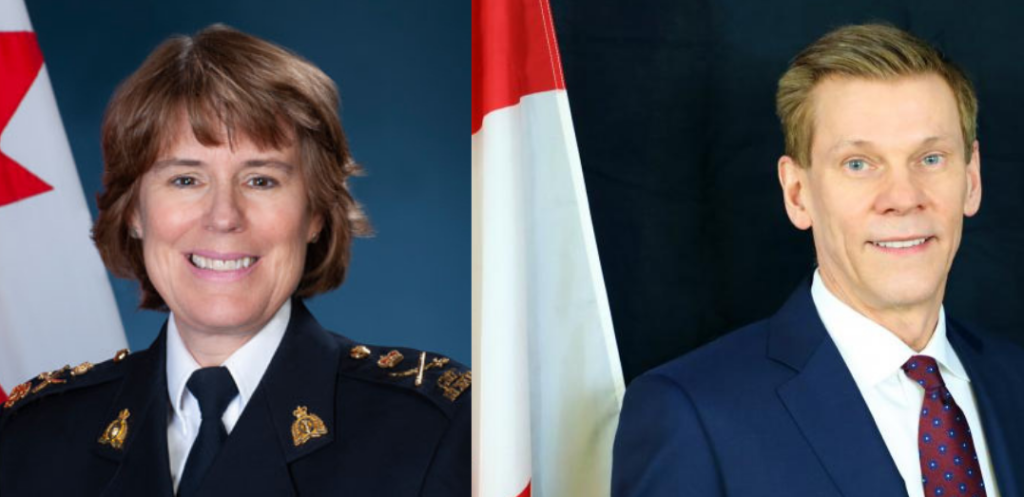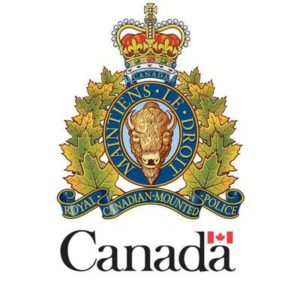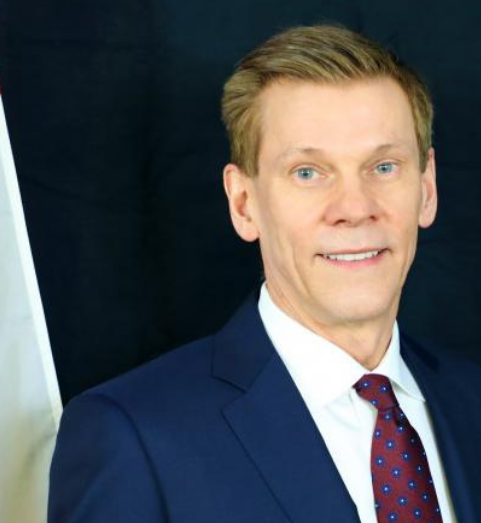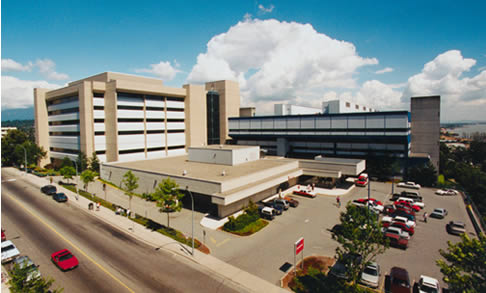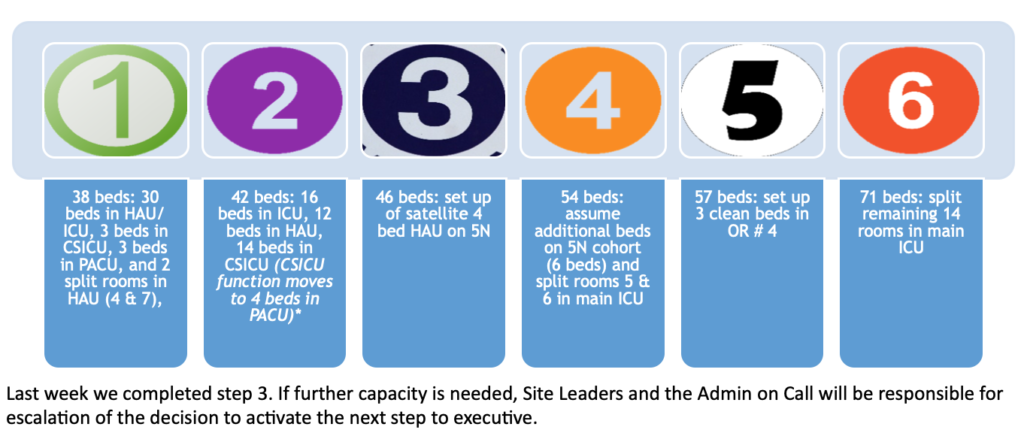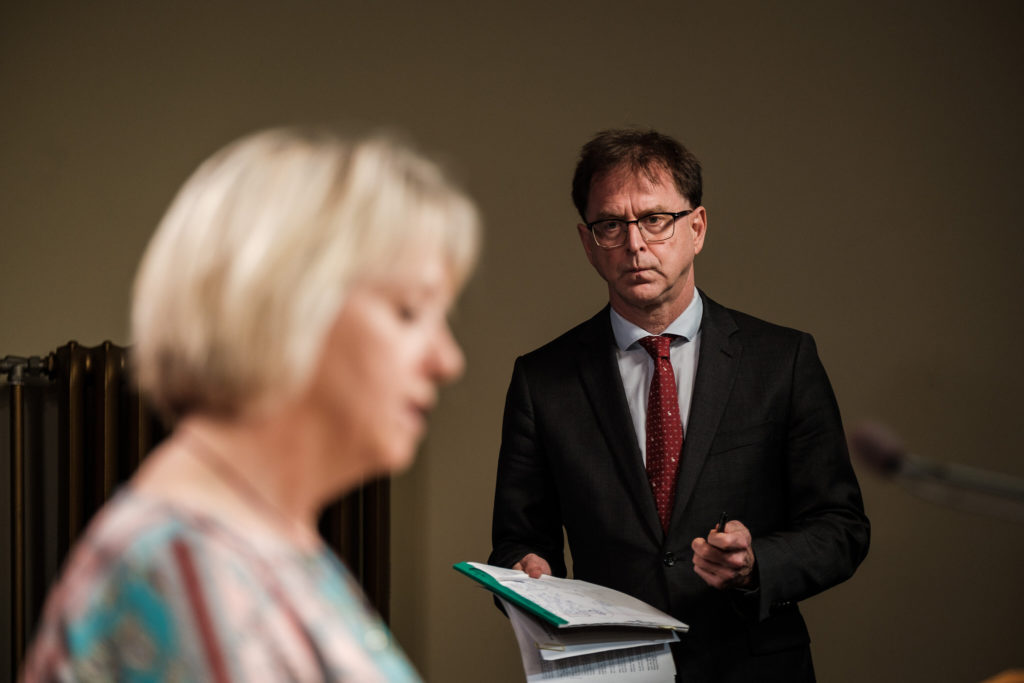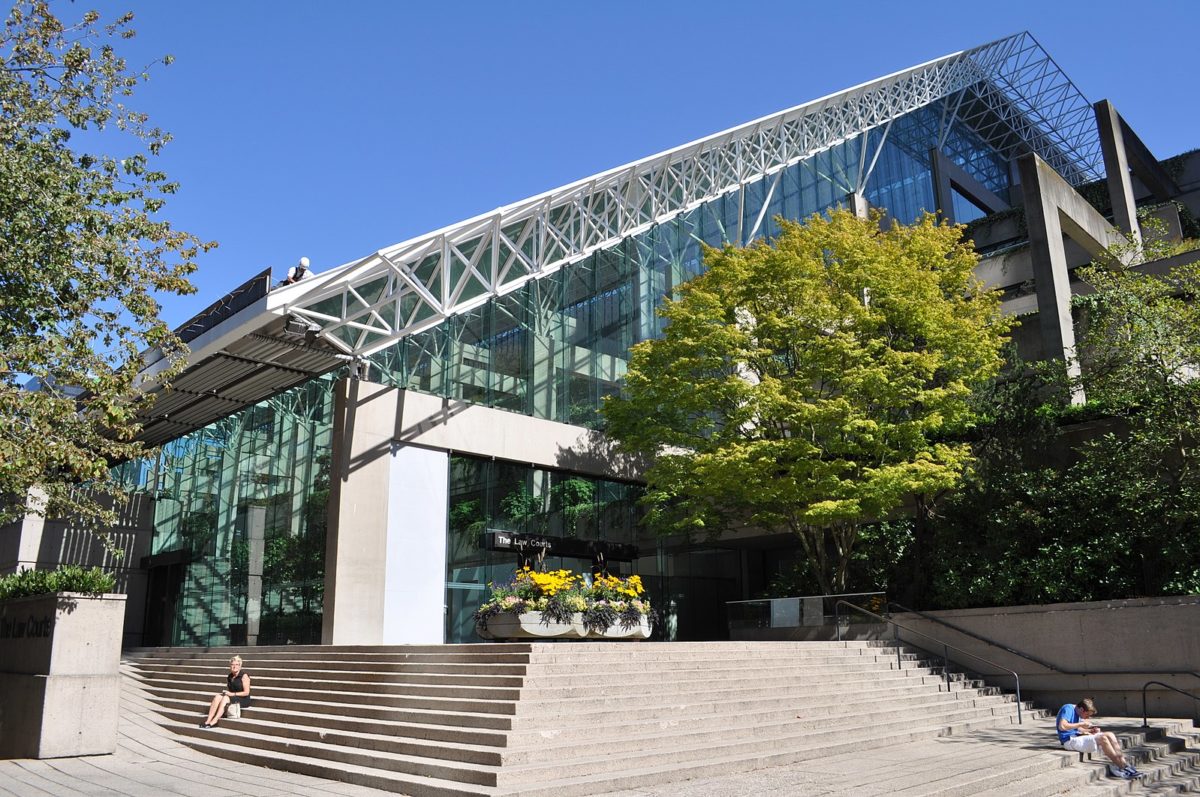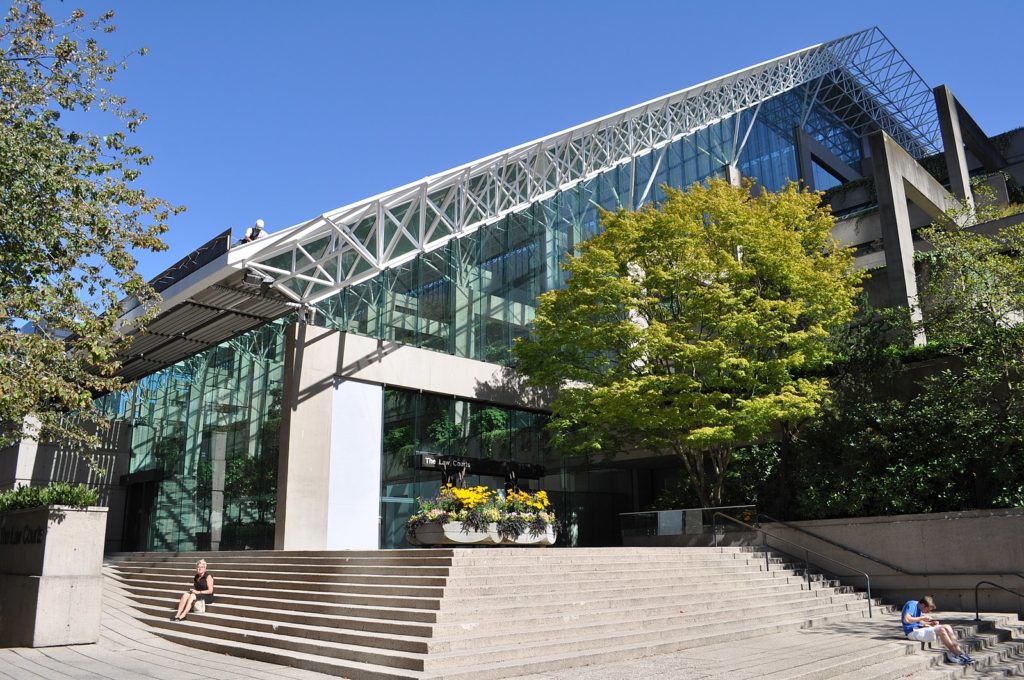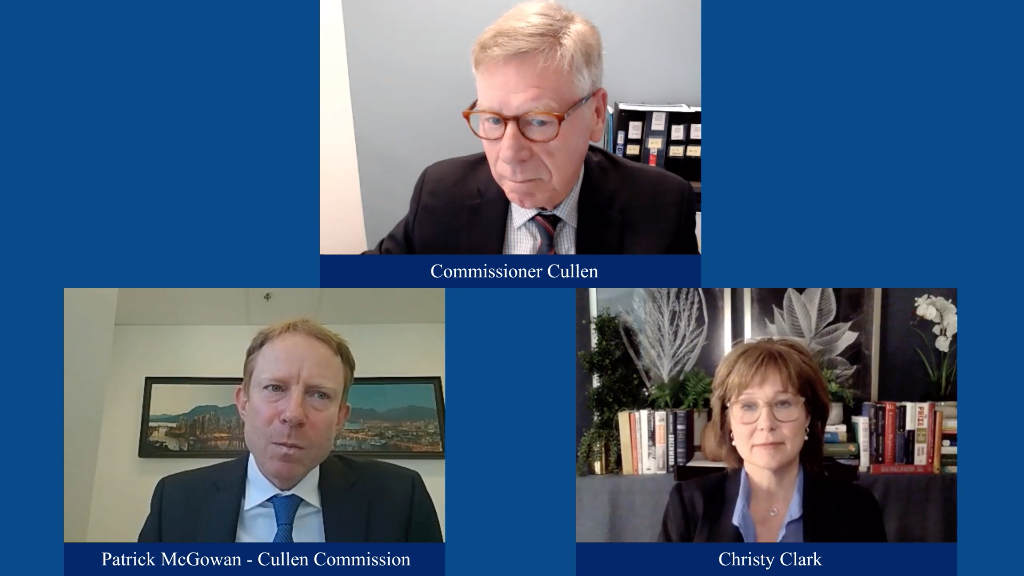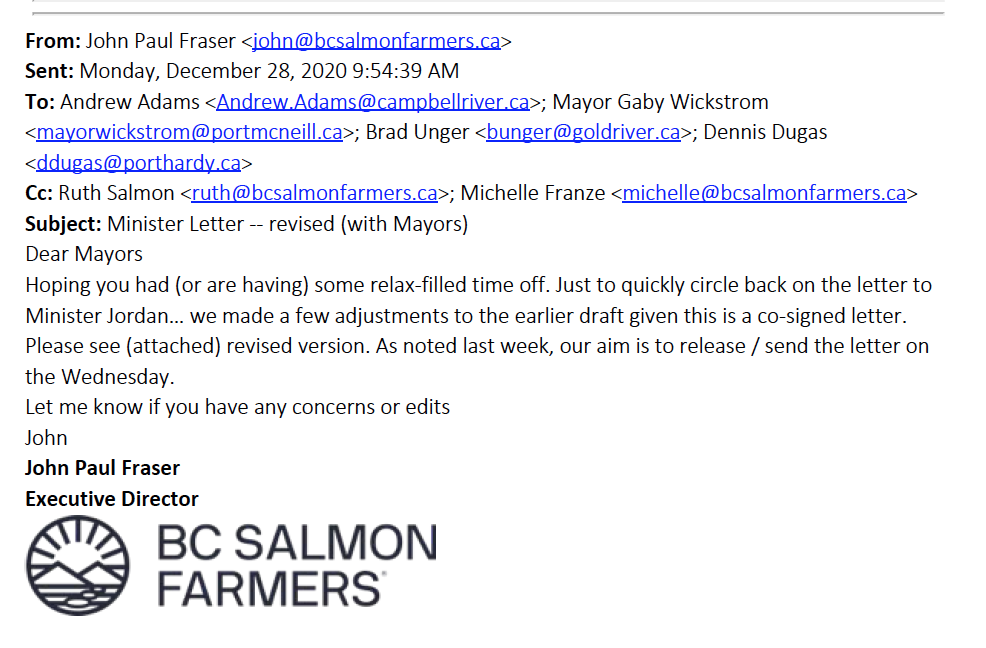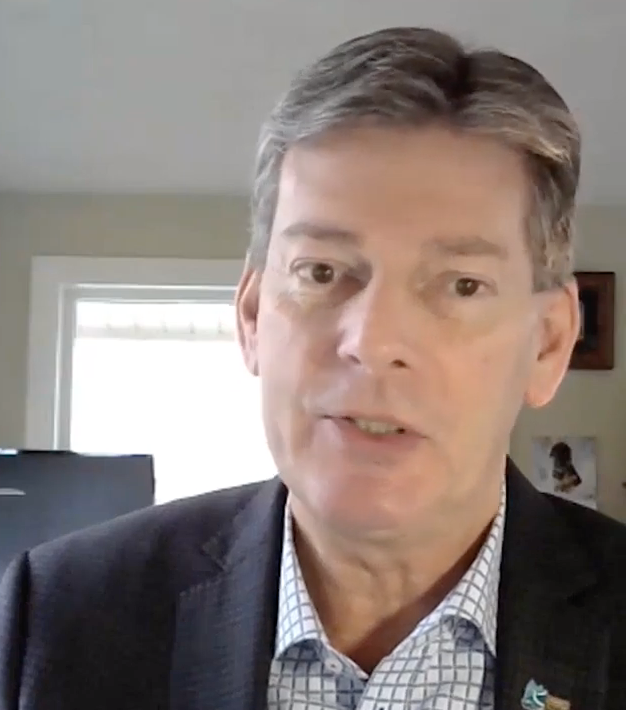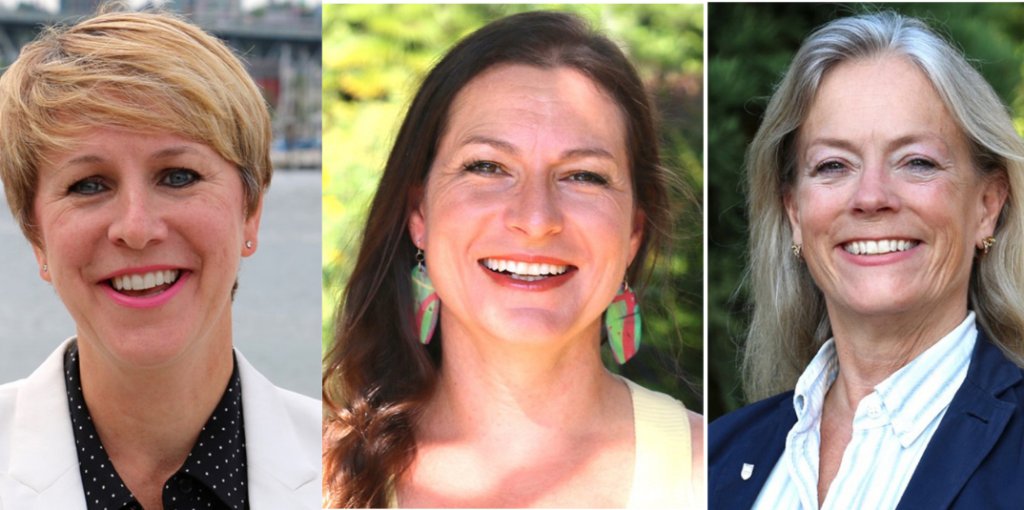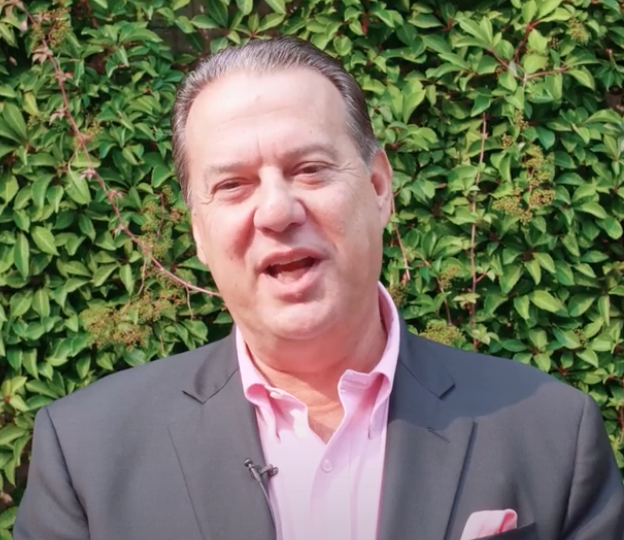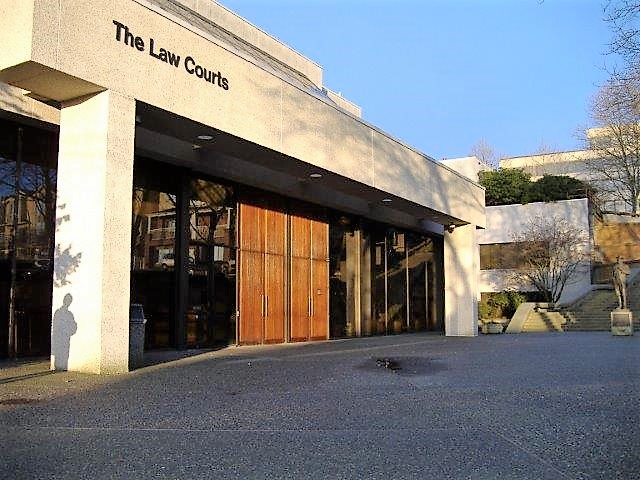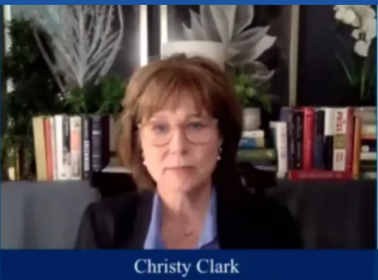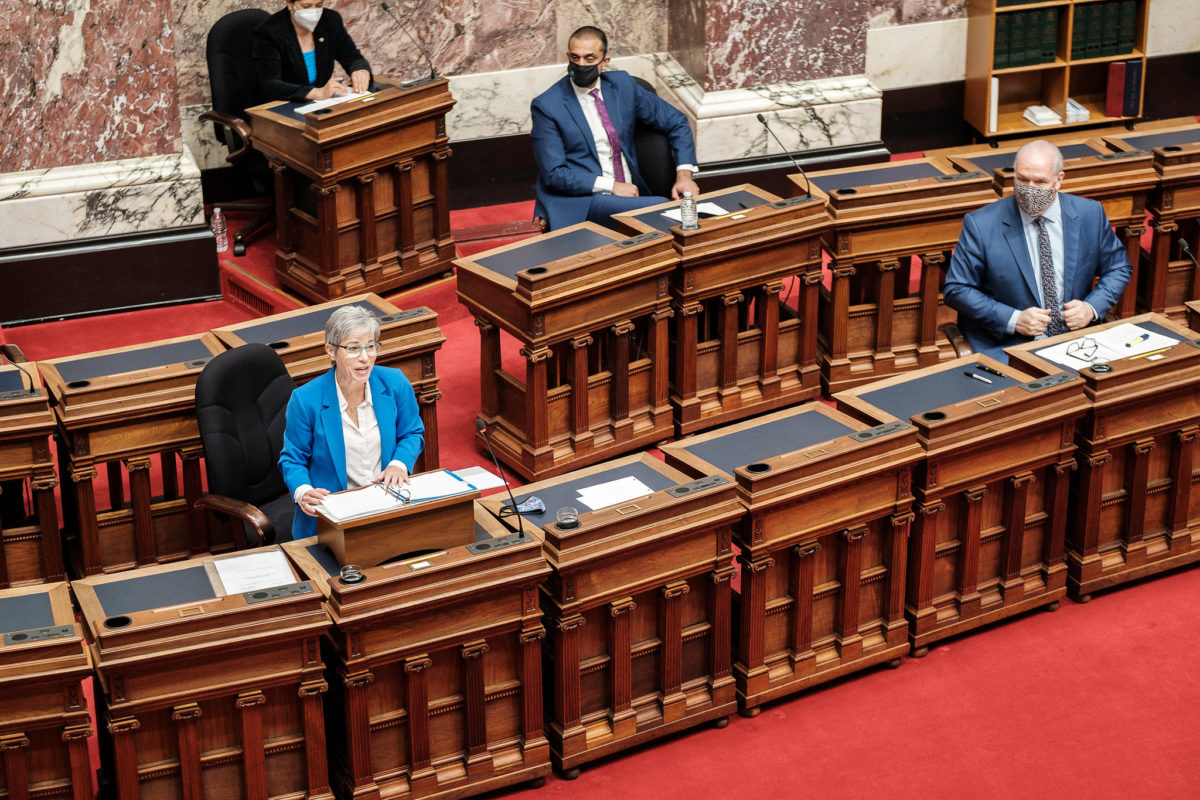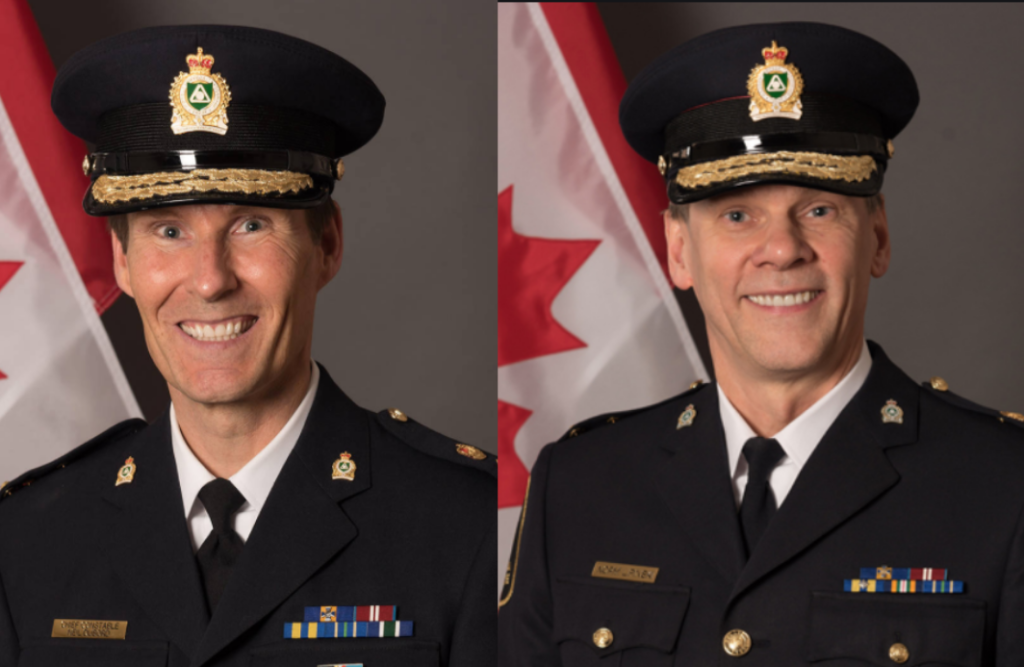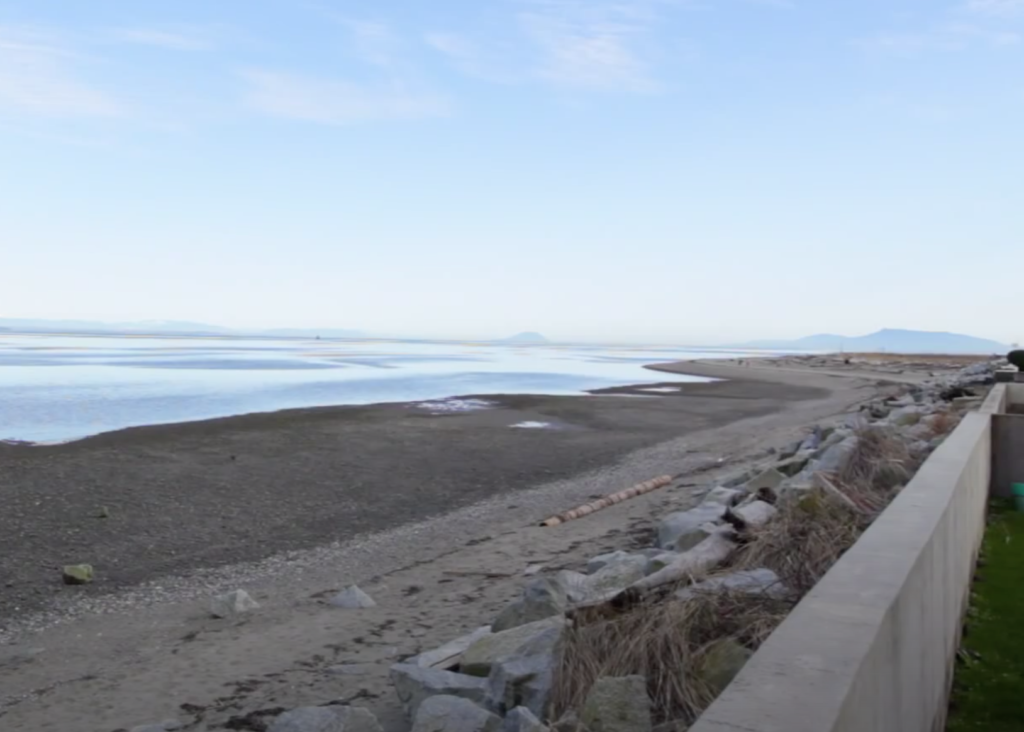Bob Mackin
B.C. NDP Finance Minister Selina Robinson tabled a budget forecasting a record $9.7 billion deficit and $102.8 billion debt April 20.
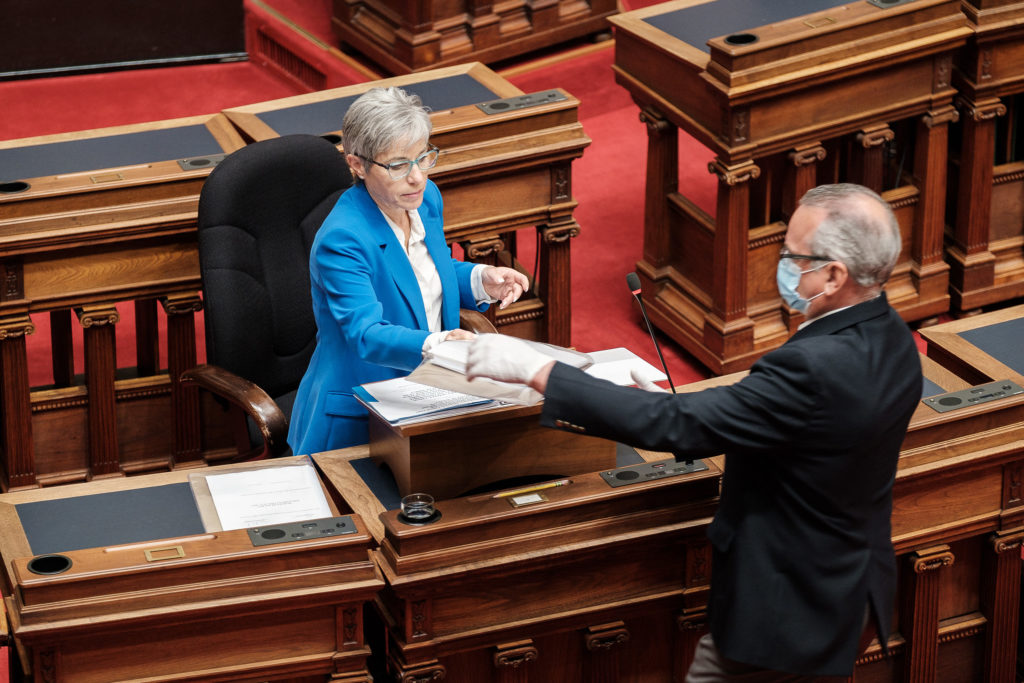
B.C. NDP finance minister Selina Robinson tables the 2021-22 budget on April 20 (BC Gov)
The pandemic budget was delayed two months, because of last fall’s unscheduled election.
The outlook improved from the fall 2020 update, citing better retail sales, housing starts, home sales, exports, wages and salaries than forecast. Economic activity is forecast to return to pre-pandemic levels by 2022, but the recovery is expected to be uneven. The main risk is the duration of the pandemic and its lasting provincial, national and global economic impacts.
The $33.7 billion anticipated tax revenue includes $11.17 billion in personal income tax, $7.87 billion in sales tax and almost $5 billion in real estate-related taxes — $2.97 billion property tax and $1.975 billion in property transfer tax.
- John Horgan’s office is getting another $3.3 million, leapfrogging the Ministry of Mental Health and Addictions, which is getting only $23,000 more.
The budget includes $14.68 million for the Office of the Premier, a $3.3 million increase from last year’s $11.33 million. Mental Health and Addictions saw just $23,000 more to $12.74 million.
Horgan’s office is growing with a new planning and priorities division. Minister of Finance Selina Robinson was asked why it needs such an infusion.
“As a government and as leader of the government, the premier it’s really important that the premier hears from British Columbians from all regions of the province, that he’s able to engage with all stakeholders and that he talks to regular British Columbians, who are very focused on taking care of their families, they need to hear from him,” Robinson said. “That’s absolutely critical, we’re attempting to make sure that he has access to British Columbians.”
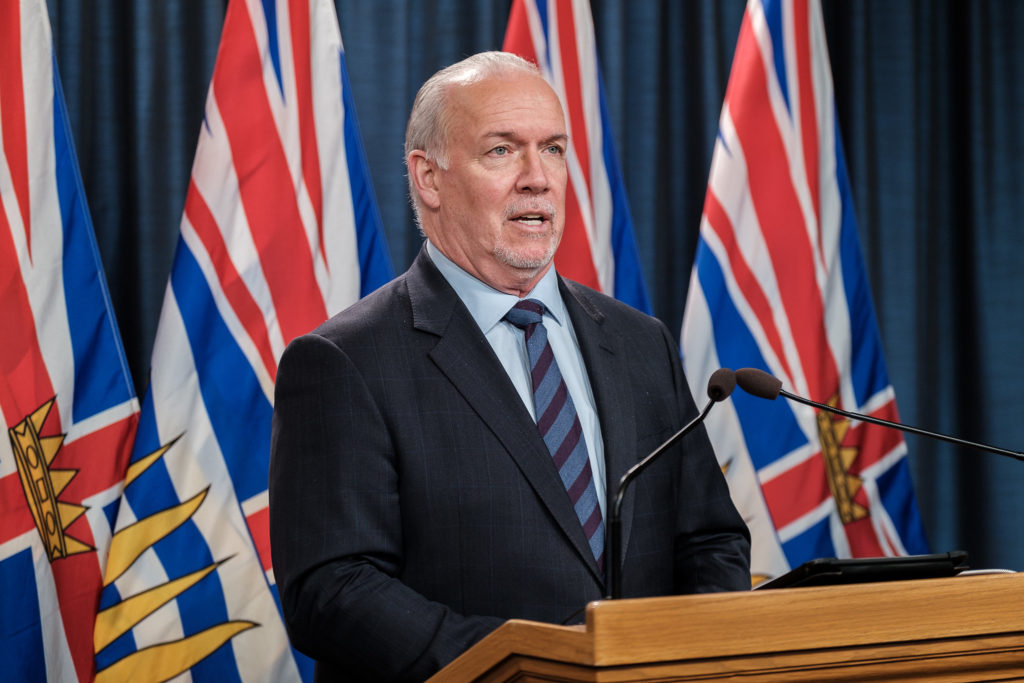
Premier John Horgan, April 19 (BC Gov)
Robinson said Mental Health and Addictions Minister Selina Robinson delivers services through the Ministry of Health, which is getting another $500 million as part of its overall $26.1 billion envelope.
- The B.C. Public Service is expected to grow by 350 full-time equivalents to 32,750. There are nearly 490,000 people in B.C.’s public sector, with government and Crown corporations, schools ,colleges, universities and healthcare. Of that, 385,000 are union members.
Commercial Crowns ups and downs
Commercial Crown corporations are expected to bring $2.87 billion.
The budget was delivered April 20 — or 4/20 for marijuana aficionados.
The Liquor Distribution Branch service plan says it has sold only $400 million in wholesale cannabis since the weed was legalized in October 2018, $250 million of which in the last fiscal year.
“Prices have steadily declined, making legal products more competitive with illicit offerings,” said the LDB service plan. “The number of different products listed and available to our customers increased to 1,362, from 971 in the prior year. As selection grows so does the complexity of delivering that product to both wholesale and retail customers.”
“Legalizing cannabis we’ve always had known it would take time to shift over from the black market, and we’re seeing it, we’re seeing it grow year after year,” Robinson said. “Enforcement is still there, that hasn’t changed, but moving the market over to a legal market and keeping children safe has been our priority.”
LDB is forecasting $1.15 billion net income for the year ended March 31, 2021, on sales of $4.15 billion. Next year’s forecast is $1.09 billion net income on $4.22 billion revenue. It estimates the cost of wholesale pricing for the hospitality sector will reduce revenue by $71 million.
“It is anticipated that a majority of British Columbians will have received a COVID-19 vaccination by fall 2021. This will assist the recovery of the hospitality industry with increased dine-out and social events.”
ICBC is forecasting $709 million net income after a $376 million loss a year earlier, “mainly as a result of favourable COVID-19 and non-COVID-19 claims trends, as well as improved investment income,” said its service plan.
B.C. Lottery Corporation net income plummeted to an estimated $394 million, according to its service plan. The Crown corporation hopes to rebound to pre-pandemic levels of $1.31 billion by 2022-2023. The closure of casinos in March 2020 devastated the gambling monopoly.
The service plan assumes reopening of casinos in late June at limited capacity, scaling up to normal capacity sometime by the end of the 2022-2023 fiscal year. Any delay would mean a loss of $20 million per week.
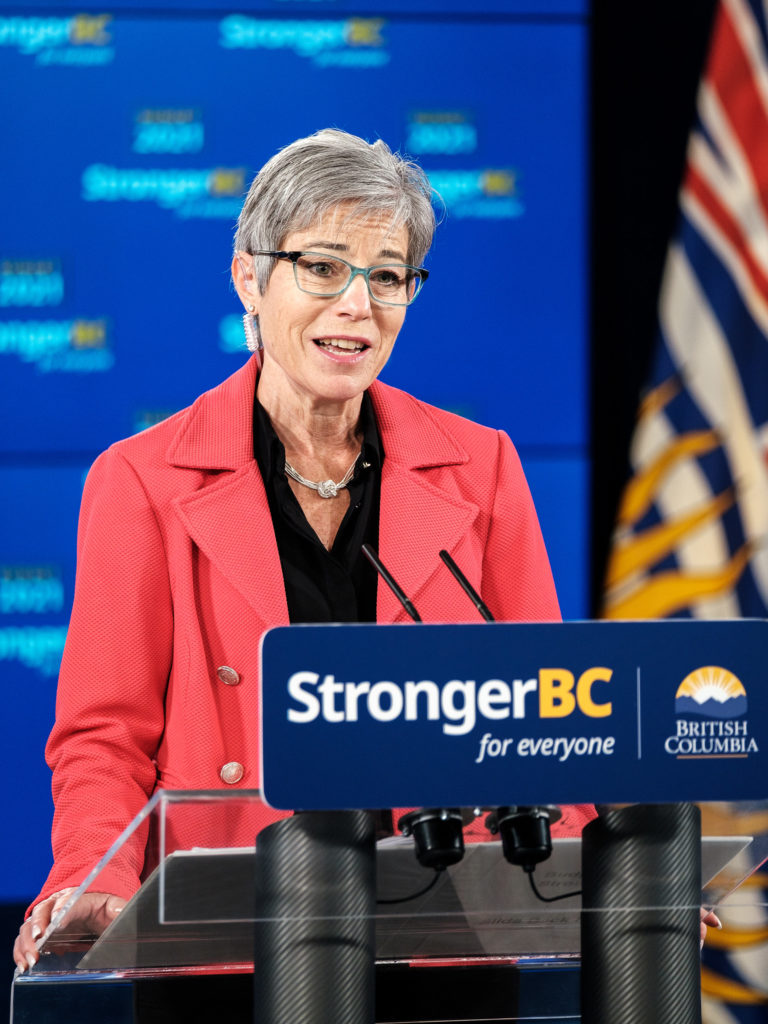
B.C. NDP finance minister Selina Robinson tables the 2021-22 budget on April 20 (BC Gov)
Robinson was asked whether that is realistic, due to the worsening pandemic in B.C.
“If casinos do open in June safely, then that’s a possibility, if it has to wait it has to wait,” Robinson said.
B.C. Pavilion Corporation, the Crown operator of B.C. Place Stadium and Vancouver Convention Centre, expects a loss of almost $5 million from last year and $24.8 million this year. Gatherings and events have been banned since March 2020. The Vancouver Convention Centre has hosted a B.C. Centre for Disease Control contact tracing centre, vaccination centre and field hospital. The latter has yet to be activated.
Even after the green light is given to hold conventions and sporting events, PavCo faces another curveball.
“As a response to the pandemic, the global meetings industry has seen an increase in digitally hosted events. PavCo will need to balance the expectations of its clients to incorporate digital with live events; however, it is unknown how much of an influence this trend will continue to have as the sector stabilizes.”
BC Hydro expects at $712 million net this year, to stay the same through 2023-24.
Support theBreaker.news for as low as $2 a month on Patreon. Find out how. Click here.
Bob Mackin
B.C. NDP Finance Minister Selina
